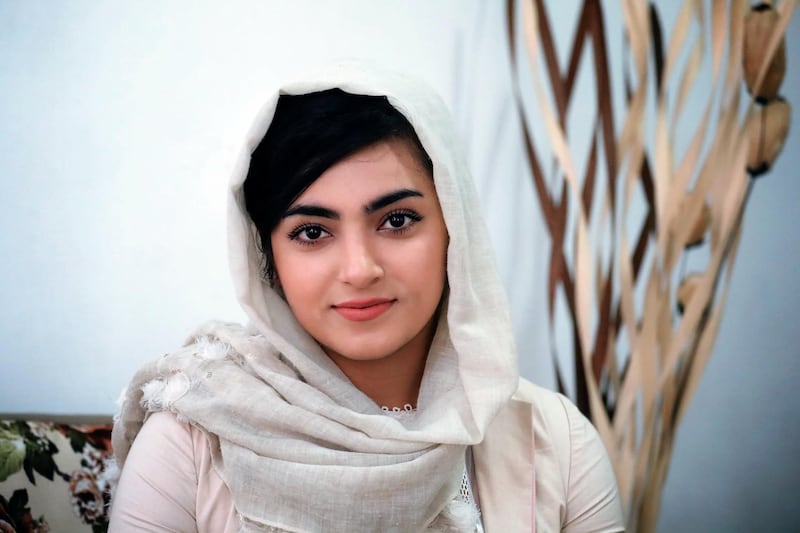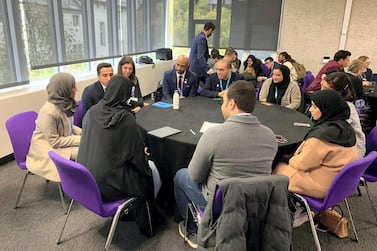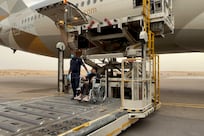Breshna Musazai says she believes that to achieve peace in Afghanistan, powerful nations such as the US must put pressure on Kabul’s neighbours that support and fund terrorism to force them to stop.
Talks between America and the Taliban had been in process for nearly a year, but US President Donald Trump called them off in September after a bomb attack by the insurgents in Kabul killed at least a dozen people, including a US soldier.
But Breshna says that even if those talks didn’t break down, they wouldn’t help achieve peace in Afghanistan.
"That doesn't mean peace to us," she tells The National. "We want real peace. The Taliban didn't promise they would stop killing us, they just wanted to a make a deal with the Americans, which is not in our interest."
“If they do come to an agreement, only US and the Taliban will benefit from it.”
Breshna, 29, has had her own run-in with the Taliban. She was nearly killed by the group in 2016 when she was studying for her law degree in Kabul.
Shooting at the university mosque
In August that year, when she was about to leave a mosque on the university complex after evening prayers, an explosion went off and the Taliban shot their way into the compound.
Students were screaming and trying to hide. Breshna tried to escape, but without shoes from prayers, she had to run barefoot over rubble with broken glass everywhere. When walking through the hallway, she saw a man in what looked like a police uniform, who shot her in the leg.
The pain was agonising but she tried to play dead to make sure they didn’t shoot her again. But that didn’t stop the man, who fired another bullet into her foot on that same leg. The pain was excruciating, but Breshna continued to play dead, lying there motionless for five hours. She hoped it would be enough to guarantee her survival.
When the first bullet hit her, Breshna’s phone had flown out of her hand, landing just in front of her face.
“The whole time I was scared - what if my phone rings? What if they know that I'm alive? What if they come closer to me?” she said.
Later, she realised to her relief, her phone was on silent. “I saw my family were calling me and I knew they were so worried about me. Inside my heart I was telling them to be patient, I'm still alive.”
Later that evening, a police officer entered the building and began firing bullets blindly into the dark hallway. Breshna could feel the whistle of the rounds passing directly above her.
“I thought I wouldn't survive because hundreds of bullets were going over me when they started shooting and during that time, a third bullet hit me on that same leg. I then decided to move because I realised if I didn't move I would definitely die,” she says.
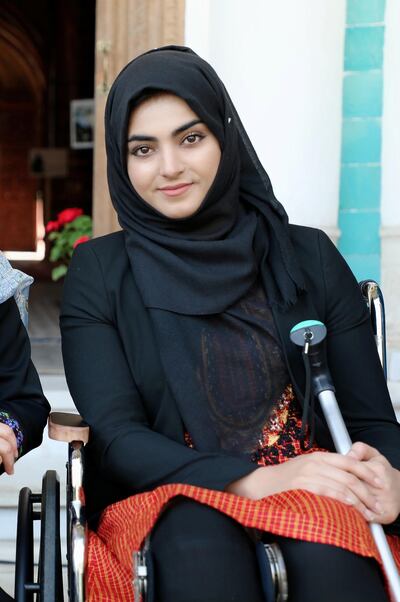
After standing up, the police saw her and stopped firing, before taking her to the hospital. After getting treatment for a few weeks at a hospital in Kabul, her university sponsored her to get her remaining treatment at a hospital in Texas, US.
Following a recovery after several months of treatment, Breshna was advised by people close to her not to return to her homeland. But Breshna defied them, because she felt she had a duty to come back to Afghanistan to educate people and spread her message.
Breshna defied all odds in June last year, when she graduated with a bachelor’s degree from the American University of Afghanistan. Paralysed by polio in one leg and shot by militants in the other, she had triumphed over the extremists.
She has often been compared to Malala Yousafzai in Pakistan, who was shot by the Taliban aged 15 and went on to receive the Nobel peace prize. Like Malala, Breshna will not be silenced and looks to educate people about their human rights.
Educating Afghans
Her mission now is to educate Afghanis and allow more young people in the country to go to school and become educated about the country’s complicated political picture.
Afghanistan has high numbers of children without access to basic education. Unicef has estimated 3.7 million children are out-of-school in Afghanistan – 60 per cent of them are girls.
Not only that, many children are traumatised after an 18-year war between coalition forces and the Taliban. And the war has closed many schools, with at least 700 shutting last year as a result of the conflict and 3.8 million children needing humanitarian assistance.
“We need good leaders and a good system, not a corrupt one,” Breshna says. “We need someone who really works for the country and not just for themselves. It's hard to trust our system and our leaders so I think young, committed leaders can help.
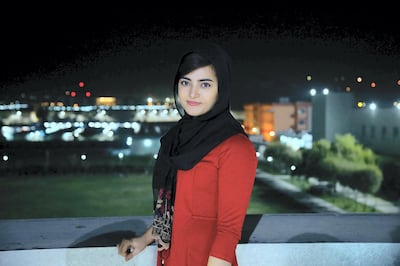
She says that Afghanistan needs to put more pressure on its neighbours to not support terrorism.
“The US and other powerful countries also must help Afghanistan. If they really want peace in Afghanistan, they should put pressure on other countries like Pakistan and other countries supporting terrorism.”
Breshna believes that young Afghans need to be educated to “spread awareness so they know what is wrong and what is right”.
“There are people who are not educated, who are not aware of their rights. These kind of people support the Taliban,” she says.
Even some of Breshna’s relatives believe that Taliban are not wrong and some even said she deserved to be shot for studying at an American university. Breshna says that this is because they’ve not been educated properly.
“We really need education for these kinds of people who are ignorant and don't value the rights of women. Even there are women who are don’t value their own rights.”
“The people in Afghanistan who are not educated, they think foreigners are here to invade us, to convert us to Christianity, to end religion and take Islam from Afghanistan. Some people have this kind of mentality, so it's the lack of awareness, lack of education and that's why they support the Taliban and these kind of people are usually in rural areas.”
Breshna has been working with several NGOs, most recently the Women's Initiative to Strengthen and Empower, and delivering speeches to help educate young people about the dangers of the Taliban. She addressed crowds of young leaders last week at the One Young World conference in London, sharing her story. Working with the Women's Initiative, Breshna is looking to provide more young Afghan girls with the opportunity to study.
Looking back, the young activist says she does not regret returning to Afghanistan, despite being advised against it.
“I’ve always felt I had a responsibility as an Afghan citizen to do something for the people [in my country] who are in need. I really wanted to do something even before I got injured so when I came back, I realised that I made the right decision because many people were inspired.”
“We really need the commitment of young Afghans for a better future,” she says.
